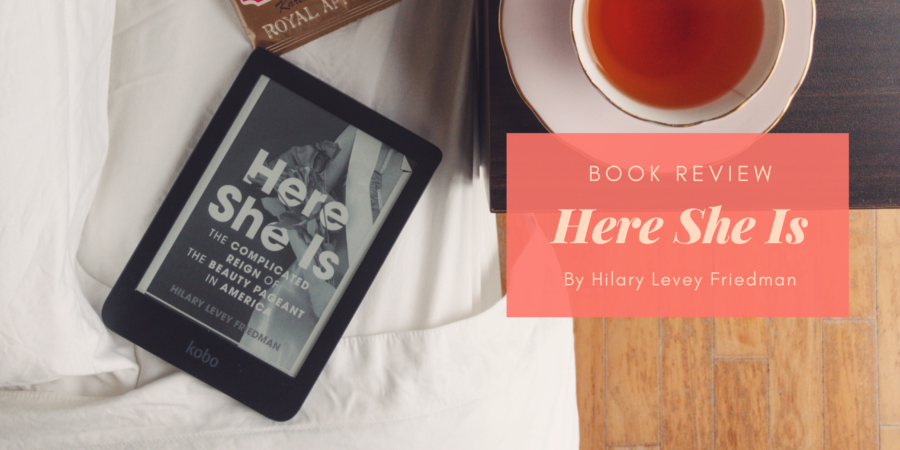At first glance, Here She Is doesn’t sound like something I would read or request from NetGalley, given that it’s about the history of the beauty pagent, something that I’ve not been involved in nor follow. But, I do like reading about histories of obscure subjects, I was intrigued by the idea of using a feministic lens while reviewing the history, and I remember enjoying Miss Congeniality. So here we are.
The book does what it promises to do – look at the history of beauty pageants and how they intersect with feminism. In short, Friedman argues that the first pageants (which were for children rather than women) helped women to appear in the public sphere in a respectable way, coinciding with the right to vote. As time goes by, pageants continue to play a role in shaping the role of women in the public eye (and through the scholarship and social platform components, to promote certain ideas). At the same time, pageants have a complicated relationship with feminism, which I think can be summed up in the question: are they empowering or are they objectifying?
Since I didn’t know much about the topic, I learnt quite a bit and revised my view on the use of pageants, mostly in the time where women had very limited spaces to appear and how this might be used for them to gain scholarships or launch a platform. That said, the very academic tone of the book means that it’s not the most accessible work.
From what I can tell, the author has done a lot of research in looking through old pageant books to establish trends and interviewing people who are involved in the pageant world; I particularly enjoyed the section where she interviews women who were involved in pageants as children and how they had very different experiences and attitudes towards child pageants. However, I did see this review by Nicole Kelly (who was mentioned briefly in the book) with regards to inaccuracies in the chapter on intersectionality and pageants, so while I trust the general narrative of the book, I’m not as sure about the details.
Overall, I enjoyed this book. The subject matter was new to me and I liked the way that it was explored (even though I could do with a slightly more accessible text). As someone who’s exposure to the Beauty Pageant world happens only through a few movies, I learnt quite a bit about its history and relationship to feminism, something that I had not considered before.

Interesting. I never thought of beauty pageants as having any positive social function, but perhaps they do or did at one time.
Have you see the movie Miss Congeniality? It’s a comedy and very American in context, so I’m not sure how much of the humor would translate across cultures. But I love the way that it takes the MC’s expectation that the contestants will all be brainless Barbie dolls, and subverts them.
Yes! I only know of beauty paegents via MC – it’s hilarious!
Yeah, I didn’t expect them to have a positive function, so the book was really interesting
OK, glad you have seen it … you are all caught up. 😉